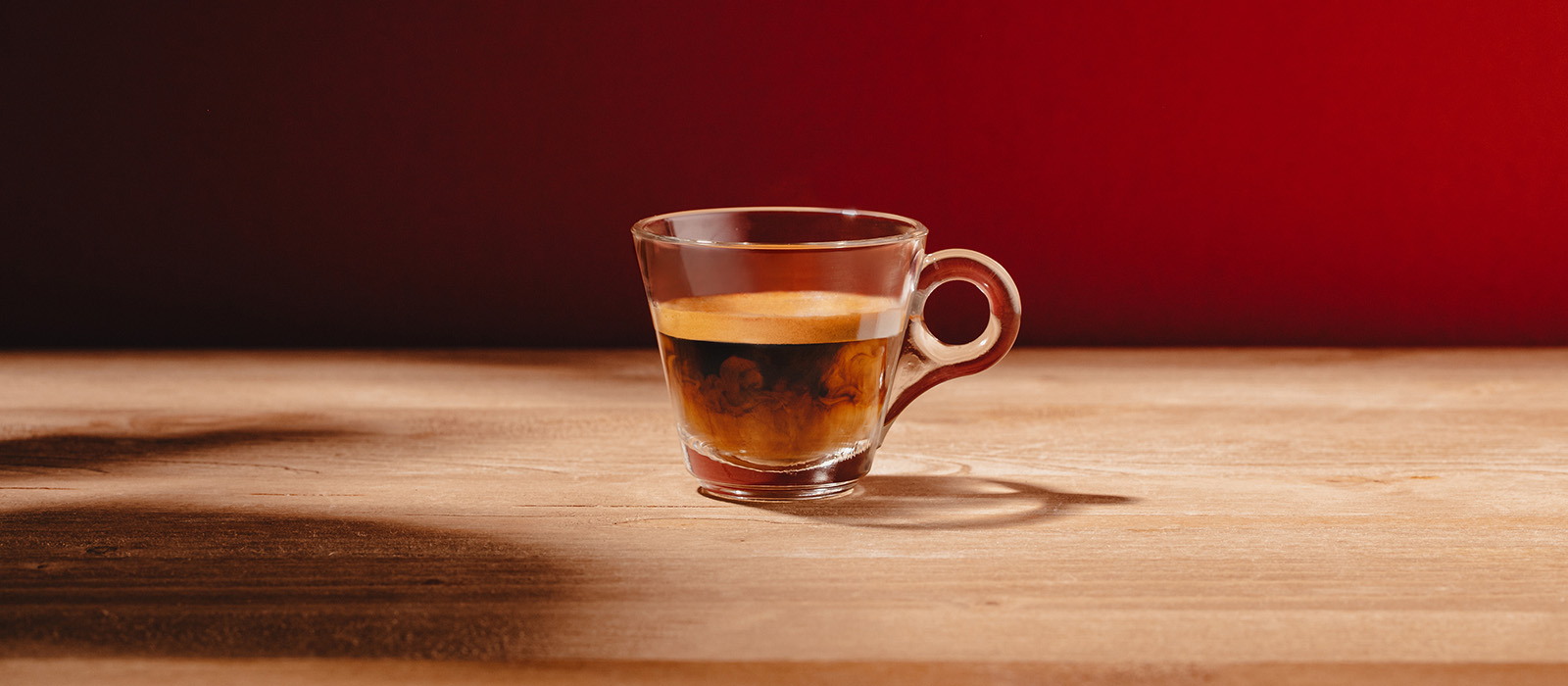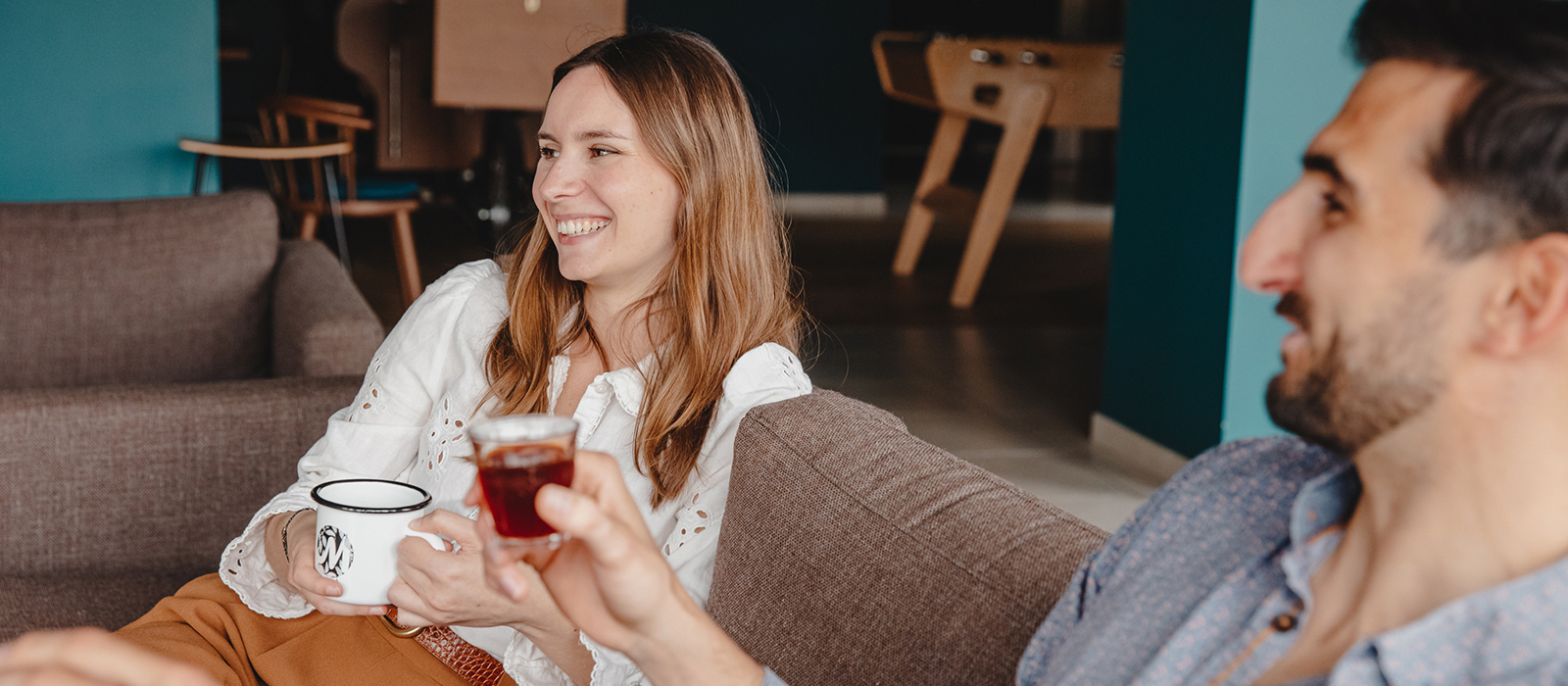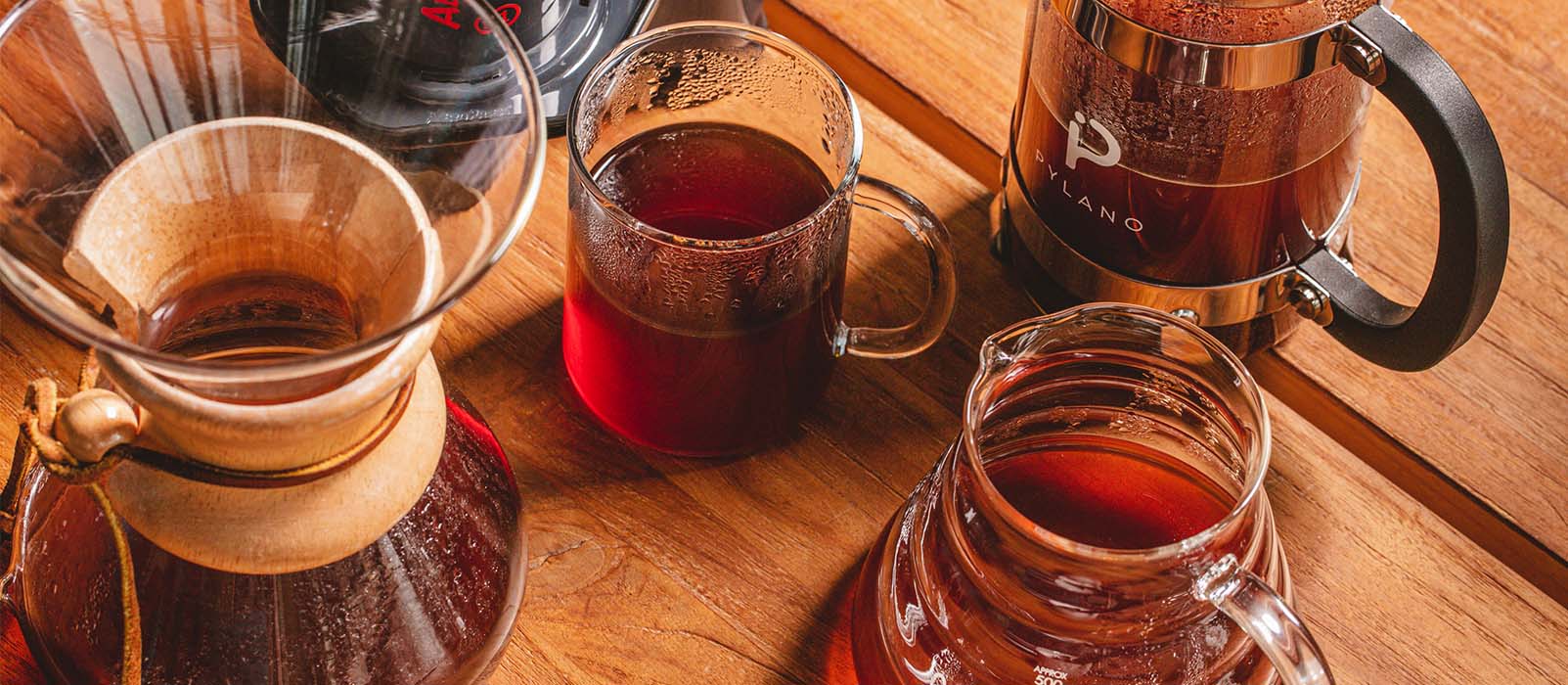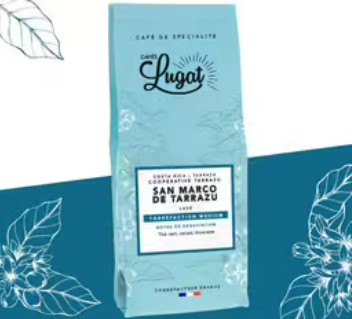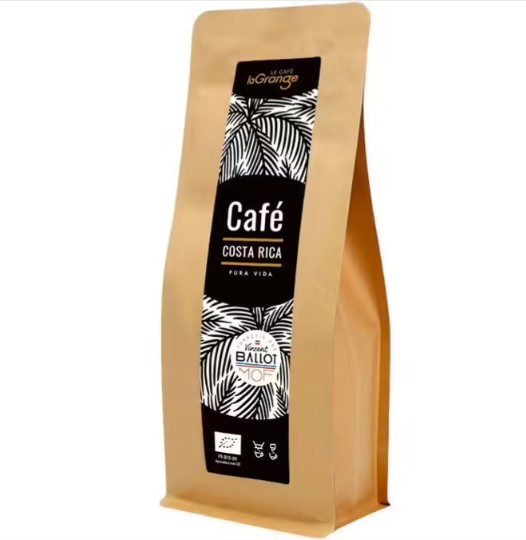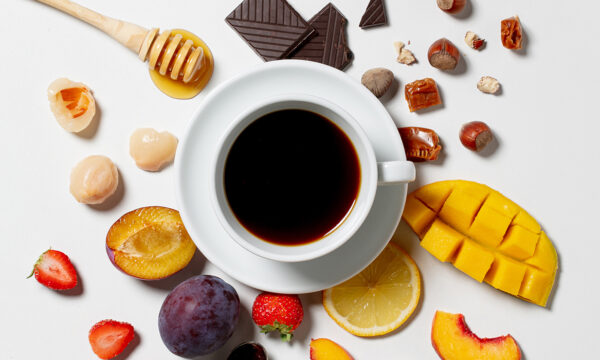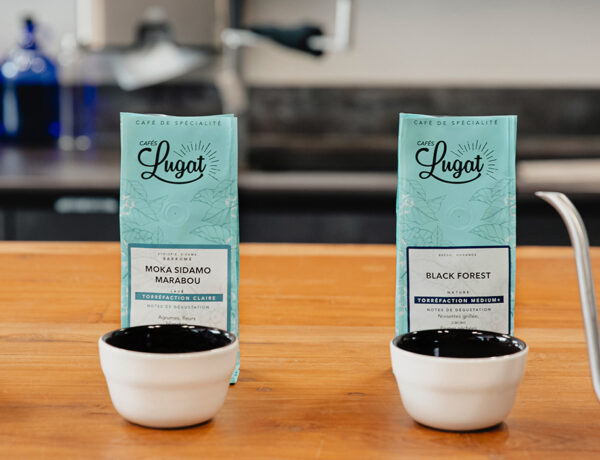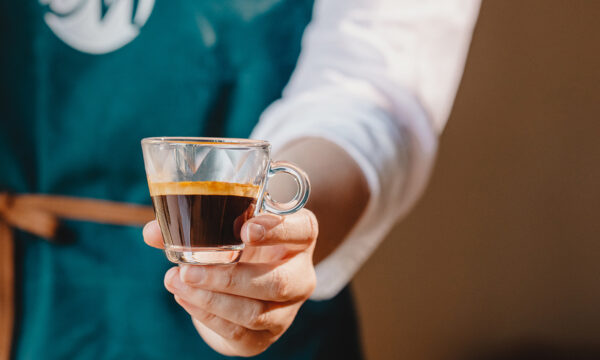
- Home
- The big coffee dilemma: to sugar or not to sugar?
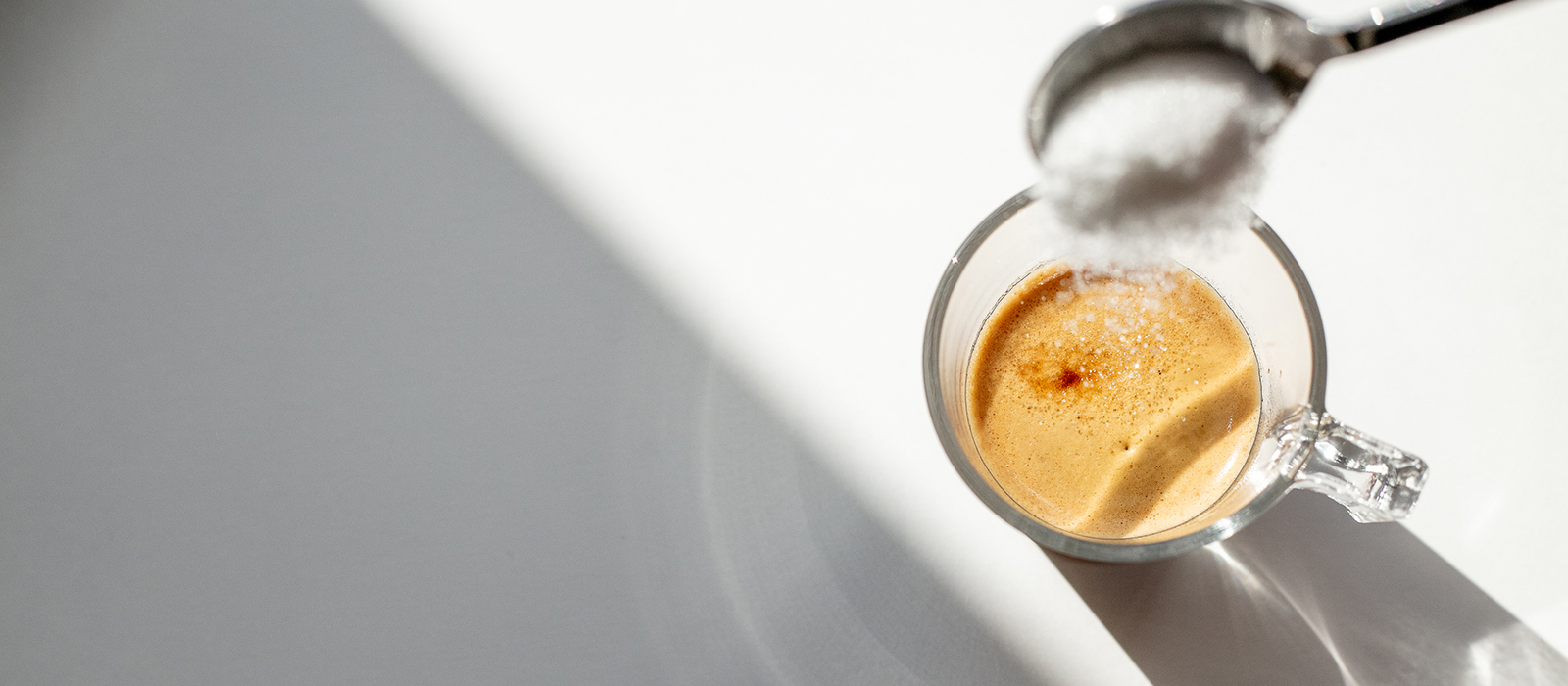
The big coffee dilemma: to sugar or not to sugar?
Written by Julie
Reading time 6 minDo you take your coffee with or without sugar? It’s a question that has long been the subject of heated debate! I first drank coffee when I was about 14 years old. I found the taste so strong and bitter that I had to put two sugar cubes in it! How about you? Naturally, much time has passed since then and my tastes are very different now. To the extent that it’s become practically impossible for me to drink sweetened coffee without grimacing. These days, whether I’m drinking espresso or filter coffee, I always take it without sugar. Besides, for health reasons, it’s important to reduce the amount of sugar in our diet. So why don’t we all start cutting down on the amount of sugar we put in our coffee?
Why do we put sugar in coffee?
The “coffee + sugar” combination is nothing new. Let’s face it, we probably all started out that way.
But why? Well, in small doses, sugar acts as a flavour enhancer. But more than anything, it serves to mask the “defects” of coffee, including its pronounced bitterness.
The taste of sugar is particularly appealing because it suggests to our brain that we’re eating high-calorie food. This is a big part of the feeling of pleasure that we get when tasting coffee.
We tend to put sugar in over-roasted (overcooked) coffee that has a more bitter taste (a sort of grilled bitterness).
But did you know that it’s not the end of the world if your coffee is bitter? Let me explain!
How to drink coffee without sugar: my top tips
Many of us have preconceptions about coffee. Or more specifically, about its taste. In our collective imagination, the taste of coffee MUST be bitter. However, if we look at the criteria identified by the SCA (the Specialty Coffee Association, the body that represents the best coffees in the world), too much bitterness is a defect! Coffee has not one but SEVERAL flavours and for coffee to taste GOOD, you have to find the perfect balance between bitterness, acidity and sweetness. Because yes, some coffee acquires a natural sweetness in accordance with where it is grown, how it is processed following harvest and how it is roasted. For example, the Moka Odako from Ethiopia naturally develops notes of mango, mandarine and caramel.
The pros and cons of coffee without sugar
Advantages:
- You get the authentic taste of coffee
- The aromas and flavours linked to the coffee’s terroir remain intact
- You can consider yourself a true coffee lover (well done!)
- 1 espresso + 1 sugar cube = 25 kcal VS. 1 espresso without sugar = 1 kcal (how many coffees do you drink per day?)
Weaknesses:
- We’ve only found one: you become very picky about all things coffee!
Which is the best coffee to drink without sugar?
First and foremost, I’d always advise you to stick to high quality, freshly roasted coffee beans. If you know that your coffee has been roasted only recently, it should present a greater variety of aromas and flavours. Coffee starts to lose its organoleptic qualities from as little as a month after roasting.
In order to acquire that natural sweetness, the coffee cherries must be picked when they’re ripe. This is why I recommend that you look for high quality and ideally traceable coffee beans. There is little or no selection process behind the choice of cherries that go into low quality coffee beans, which means that different levels of ripeness tend to be all mixed up.
The drying process plays a key role too. You can find a whole article on that subject here.
Right now, I’ve got a real thing for Juan Carrea coffee. To my mind, it offers a perfect level of sweetness and very little bitterness, presenting hints of brown sugar, cranberries, orange and milk chocolate. Definitely one to check out as soon as you can!
Choose the right extraction method for added sweetness
Aside from certain traditional rituals, like when drinking ristretto or Turkish coffee, we’ve seen that it’s not necessary to add sugar to high quality coffee. But that’s not to say that how your coffee is roasted doesn’t also play an important role in the sweetness of its taste! Quite the contrary: this is a critical step. Coffee that is over-roasted (overcooked) will turn out too bitter. But if the coffee beans are not roasted for long enough, the result will be overly acidic. Naturally enough, the happy medium is found somewhere in between. But this also depends on the extraction method used (i.e. your coffee maker).
Filter coffee and Slow Coffee: gentler methods that need no added sugar
Slow Coffee, Chemex filters and the V60 are all the rage right now. And with good reason! These are the perfect extraction methods to use if you’re looking to make naturally sweeter coffee in order to cut down on your sugar consumption. Your filter coffee maker will also work miracles, so long as you use a moderate temperature (maximum 93°C) that doesn’t scorch any of your coffee’s flavours.
Espresso and more intense coffee: is sugar unavoidable?
I understand entirely that, for some people, it may seem difficult (or even impossible) to go without sugar in your espresso. And I’ll admit that I still sometimes add a bit of sugar to my ristretto. Obviously, that information stays between me and you. But if you follow these tips, then eventually you should be able to separate from our old friend sugar on good terms.
- Use high quality coffee (with no defects to hide)
- Little by little, reduce the amount of sugar you add to your coffee
- Drink your espresso with a square of dark chocolate
- Make tasting more fun by trying to identify every aroma of your specialty coffee
- Regularly clean your coffee machine (dirty machines can produce a rancid taste
Click here for a selection of coffee that makes a great espresso and is therefore perfect for your espresso machine with grinder. And here are my latest discoveries, which I’ve tested just for you.
Shopping list
Let your palate guide you!
As the old saying goes, “there’s no accounting for taste”. Sugar or no sugar, the way you drink your coffee is a very personal matter and, above all, a question of taste. However, always exercise moderation and remember that there are approximately 85 calories in every cup of sweet coffee. We already consume plenty of sugar over the course of a day, so there’s no need to add more to your coffee. Gradually cutting down on it can help both to reduce your daily consumption of sugar and to (re)discover the true taste of coffee! And if you really are a sugar addict, why not try out alternatives such as natural sweeteners, like stevia or agave syrup? Trust me, your body will thank you for it!
Discover all of our articles
